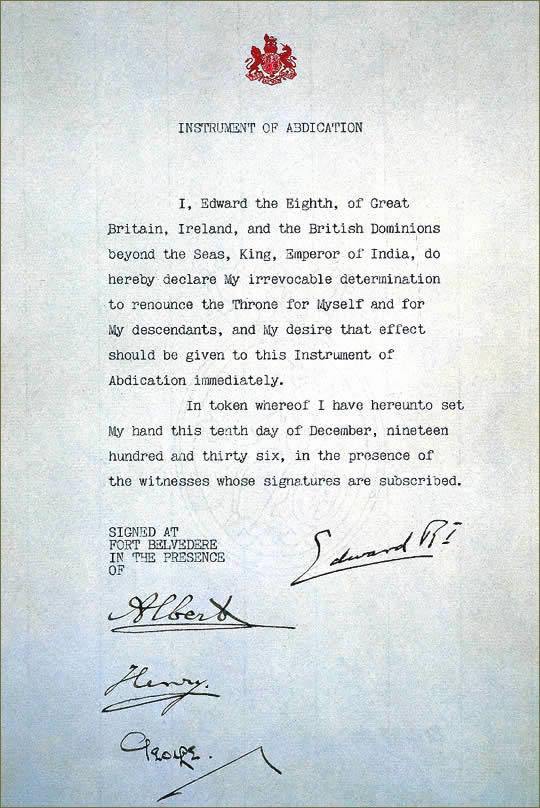
Dear Will:
Of my grandfather, it was once said: “Lloyd Taggart is never in doubt. Often wrong, but never in doubt.” In all the ways that my grandfather was an exceptional man, this reputed certainty may have been what made him most exceptional. I believe that, as we look down the dimly-lit road of life, most of us are anything but certain. Especially in those moments when a choice seems most consequential, how many of us have cried out (to anyone that might listen): “Just tell me what I should do!”
Well, at the risk of over-promising, I think I can help you get an answer to that plea. But first: a story.
Saul’s Story
Saul was a hardcore Hebrew. “A Hebrew’s Hebrew,” he called himself (Philippians 3:5). “Zealous toward God,” he was a Pharisee of the first order (Acts 22:3). Which meant that he knew that he was right—pretty much all the time. He knew the scriptures cold, and he kept the law with a zealot’s precision. With a guy like Saul, there could be no wiggle room.
So when people started talking about Jesus as if he were God on earth—come back from the dead, if you could believe it—Saul would have been outraged. That was the kind of heresy the law wouldn’t tolerate. And the consequences of such blasphemy were spelled out clearly by the prophets of old.
Thus when Stephen came around spouting that Jesus nonsense, claiming even to have seen God with the crucified Jesus standing by his side, Saul was there for the stoning—consenting to his death, complicit with those who cast the stones (Acts 8:1).
Thereafter he went about Judea and Samaria, making havoc among the so-called Christians, entering into their houses, committing both men and women to prison for their heretical lies. He breathed out threatenings and slaughter toward Jesus’s disciples, forcing them to scatter throughout the land.
Like I said: He was hardcore—and the Christians were feeling the effects of his righteous indignation. No doubt empowered by his success, he didn’t wait around for his next assignment. That wasn’t Saul’s style. Instead he went personally to the High Priest and asked for authorization to travel to Damascus, to root out the Christians there and to haul them off to prison. Of course, the High Priest was quick to give his consent.
Thus with authorization in hand, Saul headed off, fired up and determined, certain that he was doing his duty as a faithful man of God. But somewhere along that road to Damascus, Saul was surrounded by a blinding light, so powerful (or so surprising) that it knocked him to the earth. More surprising still was what happened next: From the midst of that light, Saul heard a voice saying: “Saul. Saul! Why persecutest thou me?” Saul must have found the query perplexing. “Who art thou, Lord?” he wondered out loud. And then came the stupefying, incomprehensible reply: “I am Jesus” (Acts 9:1-5).
Two Horrifying Discoveries
Let’s leave Saul there for a moment—on his knees, unable to see—and consider what must have been going through his head. “JESUS? Jesus of Nazareth? The convicted and executed heretic? Speaking somehow to me?”
In that instant, Saul must have made two horrifying discoveries: First, that not only had he been wrong, he had been 180-degrees wrong. It was hardly possible to be more wrong. What he had believed and proclaimed to be true was, in fact, false, and what he had criminalized as false had, in fact, been true all along.
Second, if that were true, then it meant that Saul, the righteous Pharisee of Tarsus, was perhaps the vilest of sinners. He had instigated the persecution of the faithful, thrown many in prison, had them put to death. It’s hard to imagine someone doing anything worse.
Saul was astonished. He knelt there, trembling at the realization of what he had just learned about both Jesus and himself. You’ll recall that Alma described what it might be like to be in Saul’s position—kneeling before God with a full realization of our sinfulness. He imagined that then “we shall not dare to look up to our God; and we would fain be glad if we could command the rocks and the mountains to fall upon us to hide us from his presence” (Alma 12:14). It’s easy to imagine Saul feeling all of that and worse.
But in spite of his overwhelming shame—or perhaps because of it—Saul did something extraordinary—something that changed the course of Christianity forever. Stealing himself for a life of penitent service, he said simply: “Lord, what wilt thou have me to do?” (Acts 9:6).
Eight Essential Words
If you get nothing else from this story, I want you to take away these eight essential words: “Lord, what wilt thou have me to do?” They lie at the very heart of what Bruce R. McConkie has called the “single verse of scripture [which] has had a greater impact and a more reaching effect upon mankind than any other simple sentence ever recorded by any prophet in any age” (Doctrinal New Testament Commentary, 3:246–47). He was referring, of course, to James 1:5-6: “If any of you lack wisdom, let him ask of God, that giveth to all men liberally, and upbraideth not; and it shall be given him. But let him ask in faith, nothing wavering. . . .”
Let me tell you how I interpret this scripture, and why I think Saul of Tarsus is its embodiment.
If Any of You Lack Wisdom . . .
James begins in verse five by describing our condition and, he hopes, our motivation when we turn to God for guidance. He says, “If any of you lack wisdom. . . .” Notice that he doesn’t say: “If any of you lack knowledge.”
It has been said that “wisdom is applied knowledge.” Put another way: Wisdom is knowledge converted into action. Thus the injunction by James comes with the implicit expectation that what we learn from prayer will require us to do something. This is what Elder David A. Bednar has called “the necessity to not only express but to do, the dual obligation to both plead and to perform, the requirement to communicate and to act” (“Ask in Faith,” Ensign, May 2008).
Put more simply: When we ask God for wisdom, we are, essentially, asking for something to do. And when we are truly determined to follow through, we are demonstrating the sort of faith James mentions later in verse 6.
So how do you ask for wisdom? You say: “Lord, what wilt thou have me to do?”
That Giveth To All Men Liberally . . .
To understand what comes next in this verse requires me to tell you what it was like to eat breakfast at my house when I was growing up. I am one of seven children born to my parents in a 10-year span. (Feel free to pause here to be horrified on my mother’s behalf.) That’s nine mouths around the breakfast table, which meant that if we had bacon, you were lucky to get a couple of slices at most.
But when we would drive to visit family in Wyoming, we would typically stop in Las Vegas for breakfast at the house of my Uncle Lloyd (named for his father, to whom I introduced you earlier). He always served his homemade sourdough pancakes—which we loathed—but along with the pancakes he would bring out a platter heaped with bacon. There must have been three pounds easy. For me and my siblings, it was a regular bacon-palooza.
I think that when James says that God “giveth to all men liberally,” he is saying that God gives out wisdom like Uncle Lloyd gave out bacon. In other words, when we ask, He will not be looking for excuses to withhold wisdom, but rather He will be looking for every opportunity to grant us the wisdom we desire.
In this, James echoes the words of the Sermon on the Mount:
7 Ask, and it shall be given you; seek, and ye shall find; knock, and it shall be opened unto you:
8 For every one that asketh receiveth; and he that seeketh findeth; and to him that knocketh it shall be opened.
9 Or what man is there of you, whom if his son ask bread, will he give him a stone?
10 Or if he ask a fish, will he give him a serpent?
11 If ye then, being evil, know how to give good gifts unto your children, how much more shall your Father which is in heaven give good things to them that ask him? (Acts 7:7-11)
Jesus is speaking very plainly here. “Ask and ye shall receive,” He says. But remember: What James says we should ask for is wisdom. When we ask for other things, perhaps God might be more restrained. But wisdom? He gives that out liberally.
And Upbraideth Not . . .
Which brings us to the next part of verse five. If you’re anything like the rest of us, you have, at best, a vague idea of what upbraid means. It is not, as you might expect, the world’s most elaborate comb-over. Upbraid means to find fault with or reproach severely. When your father sternly tells you that you’re not putting enough effort into your homework—and he takes away your cell phone until your grades improve—you know you’ve just been upbraided.
Why does James even bring this up here? Because he knows that many of us stop praying when we feel unworthy. He knows that feelings of inadequacy will often undermine our faith. When James says that God “upbraideth not,” he is speaking to all of us who have ever fallen into the trap of thinking like Laman and Lemuel. Remember that they didn’t even bother praying for wisdom, for they were convinced that “the Lord maketh no such thing known unto us” (1 Nephi 15:9). Either that or they knew in advance that they weren’t going to follow through.
In other words, if you yearn to know what God thinks you should do, worthiness is unlikely to be the reason you don’t get an answer.
And It Shall Be Given Him
This is why the story of Saul is so effective in helping us understand the meaning of these verses in James. Saul had made horrible choices, had done unspeakable things to others. If anyone was eligible for some serious upbraiding, it was Saul. But did that prevent him from asking (or from getting an answer)? Not at all. Even in the face of unprecedented “unworthiness,” Saul went ahead and uttered the great, eight-word prayer for wisdom: “Lord, what wilt thou have me to do?”
What happened to Saul on the road to Damascus is a reminder to all of us that if we really want wisdom from God, He will give it to us—generously—provided we ask in faith. And that’s no matter what regrettable choices may have compromised our past. Now perhaps you’re thinking: “It’s not that simple. I’ve tried it. It doesn’t work. Not for me anyway.”
Well, I can’t comment on your particular case, but what I can do is share these words from President Henry B. Eyring. Perhaps you’ll find, as I did, both comfort and insight in his description of how he prays for wisdom:
I’ve had experiences . . . of absolute assurance that I heard the voice of God. Absolute. It hasn’t happened very often. But I’ll tell you this. Every time it’s ever happened, of the times it’s happened, I was quiet inside. I really reached the point where I said, “I’ve got a choice to make here. I have to do something. I’m not wise enough. I give up. I’ll do whatever You want. Tell me.”
. . . The times I’ve really heard have been when I was really—I just had a feeling of complete quiet inside. And saying, “I give up. I just want what You want.”
And then I could hear it. And I realized that if I had been noisy in terms of my own thinking, then I couldn’t have. But yet there’s a kind of coming to a point where you say, “Father, Thy will be done. I’ll do what You want. I can’t go without You.” And then you get an answer. (“Face to Face with President Eyring and Elder Holland,” March 4, 2017)
Eight words: Lord, what wilt thou have me to do? Eight words: I give up. I’ll do whatever You want. Eight simple words.
Do you want someone to tell you what you should do? Pray those words and be open to whatever the answer might be. Pray those words with the determination to follow through. Pray those words—and truly mean it—and the promise from James will be fulfilled.
It was true for Saul. It has been true for me. And it will be true for you too.
PW
Advertisements Share this:




